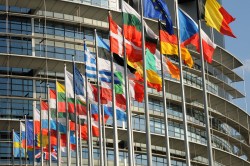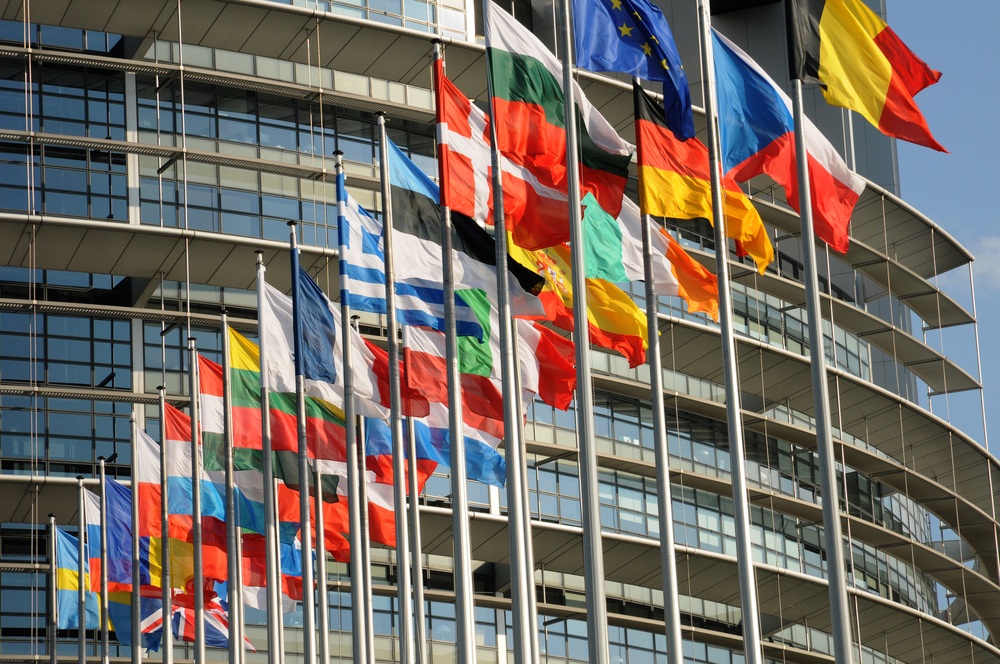
ShutterstockEurope: Not so into that carbon-trading thing anymore.
The world’s foremost carbon cap-and-trade system is floundering, and members of the European Parliament on Tuesday voted to keep it that way.
About 12,000 power plants and factories operating across the 27 countries that make up the European Union must purchase allowances to release greenhouse gases. The eight-year-old cap-and-trade program, designed to rein in carbon emissions and slow down climate change, is the world’s biggest and oldest international carbon-trading scheme.
But there’s a problem. Greenhouse gas–producing industrial activity has been slowed down by sour economies across Europe, which has left the market awash with a glut of carbon allowances. The price to buy the right to release a tonne of carbon on the E.U. Emissions Trading Scheme has dropped below $6.50 — well down from highs of more than $39 in 2006.
That means the system has stopped working. At least, it’s not working as planned: The price of carbon is now so low that it provides very little disincentive to release greenhouse gases, which means that it’s doing very little to combat climate change. Naturally, some of the businesses that must buy the allowances disagree with that logic, saying the price reflects the true price of carbon emissions in a stagnant European economy.
In a bid to revive the system and reduce Europe’s carbon emissions to lower levels than previously planned, the European Commission proposed cutting back on the number of allowances sold into the open market during the next couple of years. If the supply of allowances is pushed down, the commission reckons that economic forces would push prices up.
The European Commission is the executive body of the European Union. It’s a bureaucracy that represents the region as a whole — it’s not meant to be distracted by any parochial concerns of the 27 nations that are members of the E.U. It produces recommendations that are voted on by politicians in the European Parliament.
The European Parliament is made up of hundreds of elected officials from the E.U.’s member states. Europe’s parliament doesn’t always agree with the commission: National interests and domestic election campaigns can color the outcomes of its votes. And so it was this week when the parliament voted down the commission’s proposal to withhold around 900 million allowances over two years. From the BBC:
Despite political backing from the UK, France and Italy, [members of the European Parliament] voted against the proposal by 334 votes to 315 with more than 60 abstentions. It will now go back to the Parliament’s environment committee for further consideration.
Poland’s minster for the environment, Marcin Korolec, welcomed the move in a tweet.
“The vote of reason,” he wrote.
Traders took the lack of political support as a signal to sell, driving the market down to its lowest yet. Immediately after the vote, carbon prices dropped by around 40 percent to [$3.43] a tonne. They were trading at [$4.10], down 34 percent, by [3:41 p.m.] GMT.
“The carbon market is now in a coma, until a clear intervention takes place,” an emissions trader said.
Bummer. And the bummer moments kept coming Tuesday for those who want to force polluting industries to rein in their carbon emissions through trading schemes.
The European Parliament voted Tuesday to continue to exempt international flights from the carbon-trading scheme for a year. That was a victory for political leaders and airlines from the U.S. and other non-European countries, which argued that subjecting businesses outside the E.U. to the carbon-trading scheme would violate international law.




